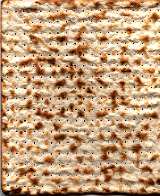The Feast of Unleavened Bread
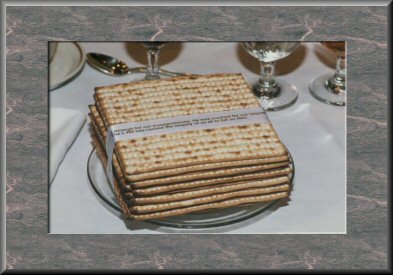
|
"And on the fifteenth day of the same month [is]
the Feast of Unleavened Bread to the LORD; seven days you must eat
unleavened bread.'"
Leviticus 23:6 (NKJV) |
It is observed in the spring of the year, immediately follows Pesach/Passover, and lasts for seven days.
|
|
Sometimes confused with Passover, the Feast of Unleavened Bread is directly linked to the Passover yet is actually a feast on its own. |
| The Feast of Unleavened Bread occurs simultaneously with Passover. It begins the day after Passover eve, and lasts for seven days. Because they are so closely related in time and purpose, the names are often interchangeable. | |
| The Feast of Unleavened Bread is meant as a reminder to us of the Israelites' redemption from bondage in Mitzaryim/Egypt and of our redemption from sin through Mashiach Yeshua/Jesus Christ. |

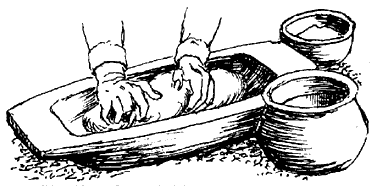
The Hebrew word used for leavening in Scripture is Chametz. It literally means 'sour'. It is that essence by which things decay. It is a fermentation process - a process of death.
|
"Therefore, just as through one man sin entered
the world, and death through sin, and thus death spread to all men,
because all sinned --"
Romans 5:12 (NKJV) |
Leaven in Scripture is usually a symbol of sin; the unleavened Matzot graphically portrays the pure and sinless Messiah. It is pierced, even as our L-rd was pierced by the nails in His hands and feet and the Roman spear in his side. The Matzot is striped in the baking, reminding us that Isaiah said,
|
"But He [was] wounded for our transgressions,
[He was] bruised for our iniquities; The chastisement for our peace
[was] upon Him, And by His stripes we are healed."
Isaiah 53:5 (NKJV) |
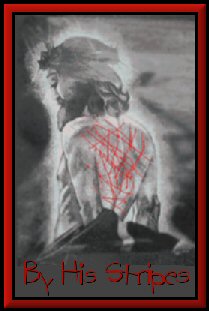
Sin too, is a
process of death and decay. Through sin death came into the world and through
sin our spirits decay. Yeshua, through paying the price for us - redeeming us -
did away with the lasting effects of Chametz. This festival celebrates this
freedom from sin's effects.
Hallelujah!

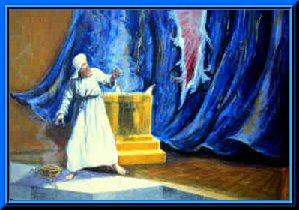

The weeks leading up to Hag HaMatzot are a time of cleansing. As we physically clean our homes of Chametz/leavening, we spiritually clean ourselves seeking out the sin which should be removed from our lives.
Some have suggested that Paul’s use of ‘old leaven’ might refer to the Jewish traditions. Thus, we would need to celebrate Passover only in the Lord’s Supper, not as the Jews do for that would be “old leaven.”
But this idea is wrong, and for two reasons. First: leaven refers to moral corruption, not traditional observance for Yeshua himself celebrated Passover according to the customs of the day, and He certainly never sinned. Secondly: “old” in the Greek is the same word as in Ephesians 4:22, “in reference to your former manner of life”.
|
"That you put off, concerning your former
conduct, the old man which grows corrupt according to the deceitful
lusts..."
Ephesians 4:22 (NKJV) |
|
||||||
|
"Knowing this, that our old man was crucified
with [Him,] that the body of sin might be done away with, that we should
no longer be slaves of sin."
Romans 6:6 (NKJV) |
So when we are told to clean out the old leaven, it's that we are to clean out the old sin from our lives. We have celebrated Passover, the sacrifice of Jesus Christ paying for our sins — judgment has passed over us. Now is the time to have no leaven in the house — no old sin in our lives. When we find leaven, we're to throw it out — there shouldn't be any leaven found in our houses, no old sin found in our lives.
![]()
You Mean, We Gotta?
Am I saying that, Biblically, all believers are required to celebrate the
Feasts in a traditional Jewish style? No!
We are certainly free in Yeshua/Jesus.
|
"So let no one judge you in food or in drink, or
regarding a festival or a new moon or sabbaths, which are a shadow of
things to come, but the substance is of Christ."
Colossians 2:16 (NKJV) |
I am saying
that, Biblically, celebrating the Feasts of the Lord is
(should be!) normative for followers of Messiah. It gives insight on the
spiritual truths of the Scriptures and is a healthy reminder to live pleasing
to the Lord. Those New Covenant believers and congregations that do choose to
celebrate the Feasts and study their Jewish roots
discover great truths and blessings. They more clearly recognize God’s
faithfulness and that “they do not support the root, but the root supports
them.” (Rom. 11:18)
|
"Do not boast against the branches. But if you do
boast, [remember that] you do not support the root, but the root supports
you."
Romans 11:18 (NKJV) |

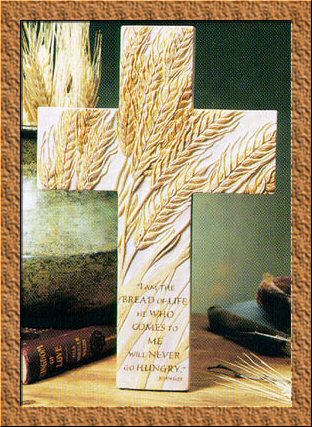
Shalom and Blessings
Billye Jeane
Reference:
Word of Messiah Ministries
http://wordofmessiah.org/index.htm
|
NOTE FROM KAY: "Your glorying is not good.
Know ye not that a little leaven leaveneth the whole lump?"
(1Cor 5:6)
Have you ever heard the
phrase, "One rotten apple spoils the whole bunch?" The decay on one
apple quickly spreads to the rest unless that one rotten apple is removed.
It only takes a small amount of leaven to cause a whole loaf of bread to
rise.
We can't stop at
removing the big sins from our lives. We must concentrate on
removing them all. Also, hanging around a "rotten" person rubs off
on us. If we allow small sins then we just may eventually allow the
large ones. Examine your life in the light of the Feast of
Unleavened Bread.
|
|
|
